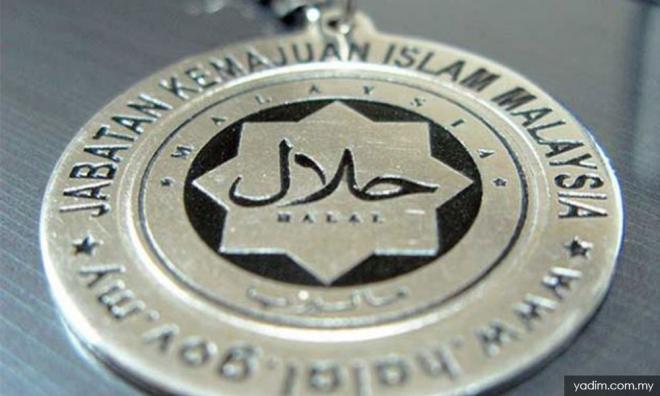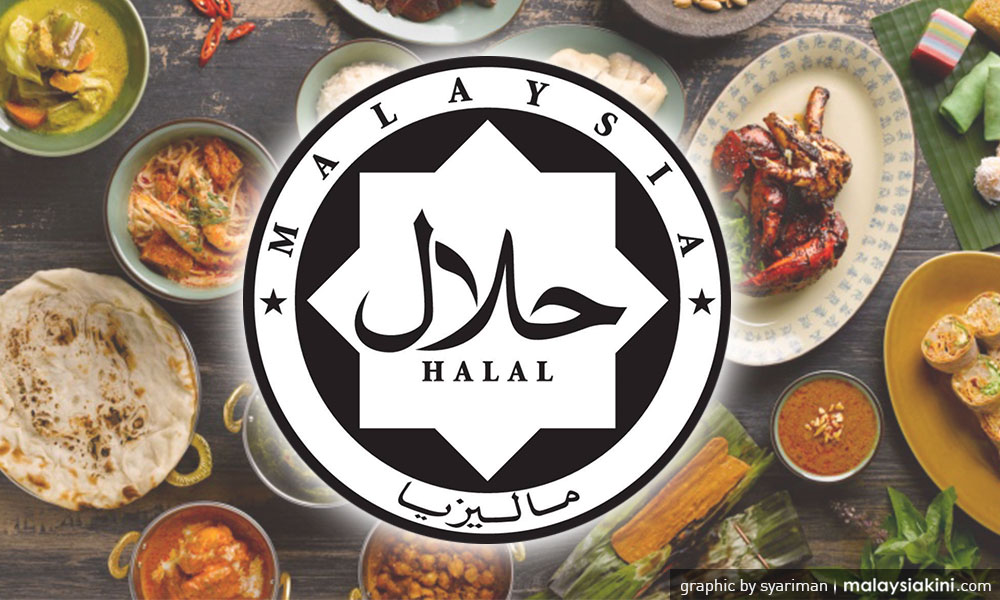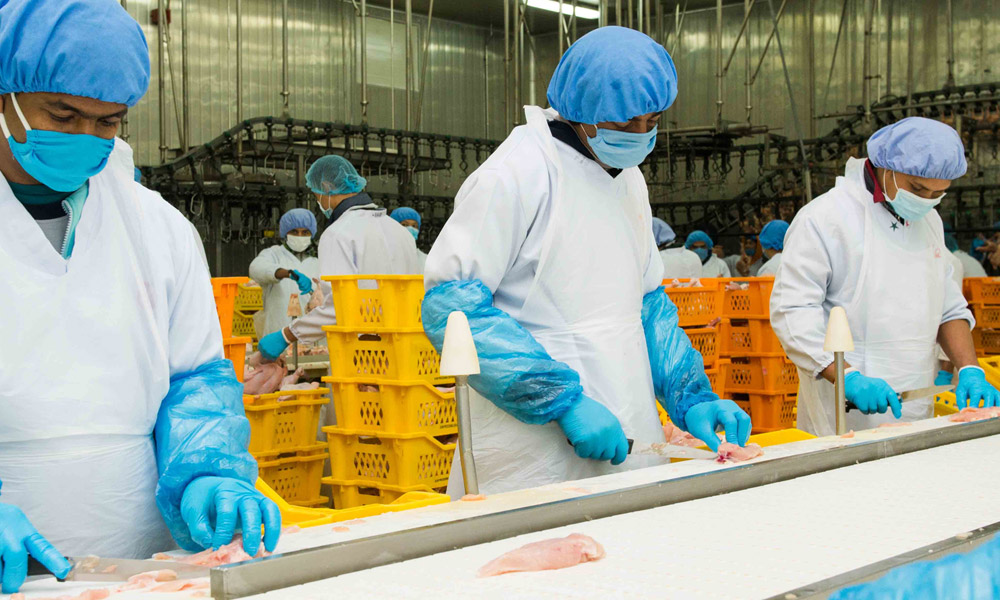
With growing demands in the global Muslim economy and the government’s backup, halal goods have become one of the staple outbound products for Malaysia. The industry also offers unique opportunities for small and medium enterprises (SMEs).
The industry had been flourishing in the past decade. Its export value saw a threefold growth and reached a peak of RM43.3 billion in 2017.
However, the country's halal export value witnessed an unexpected decline last year. The latest figure for 2019 is pending.
With the economic uncertainty ahead, can the government tackle the recent drawback and achieve the target of RM50 billion in the export value of halal goods by the end of 2020?
An unexpected decrease in 2018
In 2008, the BN government rolled out the Halal Industry Master Plan 2008-2020 in a bid to lift Malaysia to become the “global halal hub” that plays the role as “the global leader in the innovation, production and trade of a number of halal-related sectors”.
In terms of trade, the plan initially targeted RM19 billion in halal export value, but as it was attained soon, in 2011, the goal was reset to RM50 billion by 2020.
The Halal Industry Development Corporation (HDC), International Trade and Industry Ministry (Miti) and Malaysia External Trade Development Corporation (Matrade) are the main drivers of this export trade.
Malaysia's export of goods, certified as halal by the Islamic Development Department (Jakim), range from end products such as food, beverages, cosmetics and medicines, to ingredients and industrial chemicals.
In 2018, according to HDC, the export value of halal products dropped 7.6 percent from the previous year to RM40 billion.
The decline bucks the industry’s high growth trend.

The export value of Malaysian halal products almost tripled in seven years, from RM15.2 billion in 2010 to RM43.3 billion in 2017.
The compound annual growth rate in the period was more than 15 percent.
Palm oil prices a drag
So what led to the stumble?
The government has attributed last year’s halal export revenue downturn to the lowering of palm oil prices.
The commodity’s falling price impacted the emerging halal industry that relies heavily on palm-related materials, as pointed out by HDC chief executive officer Hairol Ariffein Sahari.
“If you look at our halal export, 40 percent of them are palm-based products,” Hairol said in an interview with Malaysiakini.
The breakdown of halal goods export by product types corroborates this.
Compared to 2017, halal goods exports in 2018 saw a significant drop in “palm oil derivatives” (chemical materials made from crude palm oil) and “halal ingredients” for food and non-food products.
None of the categories, except for “cosmetics & personal care” recorded growth last year.
In addition, 2018 was a bad year for the palm oil industry. The export price of refined, bleached and deodorised palm oil saw a continuous decline from US$637 per tonne in January to US$479 per tonne in December 2018.
Matrade: Unlikely to hit the target
The decline in export value has put the goal of hitting the RM50 billion export value for halal goods by the end of next year in doubt.
Remee Yaakub, the director of the halal, food and beverages and agro-based sections of Matrade, told Malaysiakini that judging from the trade metrics until September 2019, “it is unlikely to achieve the RM45 billion” export value by the end of this year.
HDC's Hairol was, however, optimistic about achieving the RM50 billion target by 2020, saying that it was possible.
“But conservatively, we cannot deny the fact that the current economic scenario is very challenging because of the economic downturn.
“It affects some industries and segments, especially palm oil,” he added.
Nonetheless, things started to change in 2019 as palm oil price went up to about US$622 per tonne in November this year.
It remains to be seen if the market trend can support Malaysia’s halal growth.
Opportunities in 2020 Tokyo Olympics Games
The government is not relying on the rise of palm oil prices solely to achieve the goals. It is still trying to expand its halal market at the global level.
The Halal Industry Master Plan 2.0, which is currently being drafted by the government, aims “to make Malaysia the most competitive country in the global halal industry” by 2030.
Detailed targets are yet to be provided, but the key to growth is internationalisation or mutually beneficial relationships with Muslim as well as non-Muslim majority countries, Hairol said.
Citing his recent trip to South Korea where he saw the lack of certified halal companies to cater to the demand as an example, Hairol said that the HDC will facilitate the halal certification among the local businesses while introducing potential partners from Malaysia.
In terms of new opportunities for halal businesses, particularly SMEs, the focus is on the booming tourism in Japan, thanks to the 2020 Tokyo Summer Olympics and Paralympics.
Last year, Japan was the third-largest importer of Malaysian halal goods, after Singapore and China.
The Entrepreneurship Development Ministry will be hosting the “Malaysian Street”, a zone near the Olympic venues where Malaysian businesses will exhibit their products, primarily halal ones.
According to the minister, Mohd Redzuan Yusof (photo), the event will be an opportunity to grab the attention of the global halal markets.

“We will showcase our Malaysian halal products in Tokyo," he told Malaysiakini in an interview.
Details have not been announced, but the ministry has selected four leading companies for the marketplace and will welcome more.
Redzuan said an estimated 40 percent of 45,000 athletes and official delegates participating in the Olympics require syariah-compliant products.
With other Muslim visitors visiting Tokyo from July to September next year for the games, demands for halal foods and other goods could open up doors to certified Malaysian companies in the industries.
A drop in the ocean
Although halal export has been a big part of the economy, Malaysia takes a very small portion of the huge global halal market.
“RM40 billion or around US$10 billion (in 2018) is very small compared to the global demand.
From the statistics standpoint, actually, our contribution to the global market is a drop in the ocean,” Redzuan said.
The global Muslim market for halal foods, pharmaceuticals and cosmetics stood at US$1.5 trillion (RM6.4 trillion), according to research firm DinarStandard.
Malaysia’s halal export value earned RM20 billion, RM400 million and RM3 billion in the three respective categories last year.
In other words, the country merely captures about one percent of the total halal demand of the world.
The DinarStandard report projects the total market size of the three consumer categories will hit US$2.2 trillion (RM9.2 trillion) in 2024.
Malaysia could do more to get a bigger cut of the economic cake. Besides Japan and South Korea, the government is also paying attention to India as its demand for palm oil products has relatively stood unaffected.
Although ranked seventh by the halal export value from Malaysia last year, India was the only country that saw a growth in the 2017-18 period.
The world’s second-largest Muslim nation after Indonesia could also potentially drive up the demand for halal cosmetic products.
Help the SMEs to flourish
Malaysia’s halal export initiatives are closely related to the promotion of local SMEs.
Redzuan said the government was targeting to uplift the contribution of SMEs to Malaysia’s export figures from the current 17 percent to 25 percent by 2020.
“And the majority of the growth should be coming from SMEs in the halal industry,” he stressed.
In fact, an increasing number of small- and medium-sized businesses have obtained the halal status and are exporting their products overseas.

Last year, 962 small, 439 medium and 426 multinational companies exported halal goods. The number of small halal exporters was 631 in 2016 and has grown by 1.5 times in the last two years.
Yet, in terms of the contribution to the export value, SMEs earn only around 30 percent of the halal exports, according to the HDC. In terms of value, the bulk of the export value of Made in Malaysia goods is still held by multinational companies.
In HDC’s estimate, more than 200,000 SMEs in Malaysia have the potential for halal certification but only 6,500, or three percent of them, have obtained the status.
“The problem here is not about the certification,” Hairol said. Instead, he believes there are not enough incentives for small businesses to undergo the lengthy and detailed certification process.
The government aims to help smaller halal manufacturers through different steps, by building a community of them.
“Many people say that once you have got the halal status, you can sell your products throughout the world. The answer is no," Hairol said.
Besides halal certification, there are other international standards to meet like the Good Manufacturing Practice (GMP) or Hazard Analysis Critical Control Points (HACCP), he added.
"These are the kinds of facilitation HDC can provide,” said Hairol.
He stressed the importance of the “need to change the game plan” by internationalising the Malaysian companies in order to seize the enormous global market.
“I believe in 15 years down the road, we shouldn’t be producing just US$20 or US$30 billion (value of export) but we should do more.
"The only way to do it is to connect our halal ecosystem with the halal ecosystems available in other parts of the world,” Hairol added. - Mkini



No comments:
Post a Comment
Note: Only a member of this blog may post a comment.